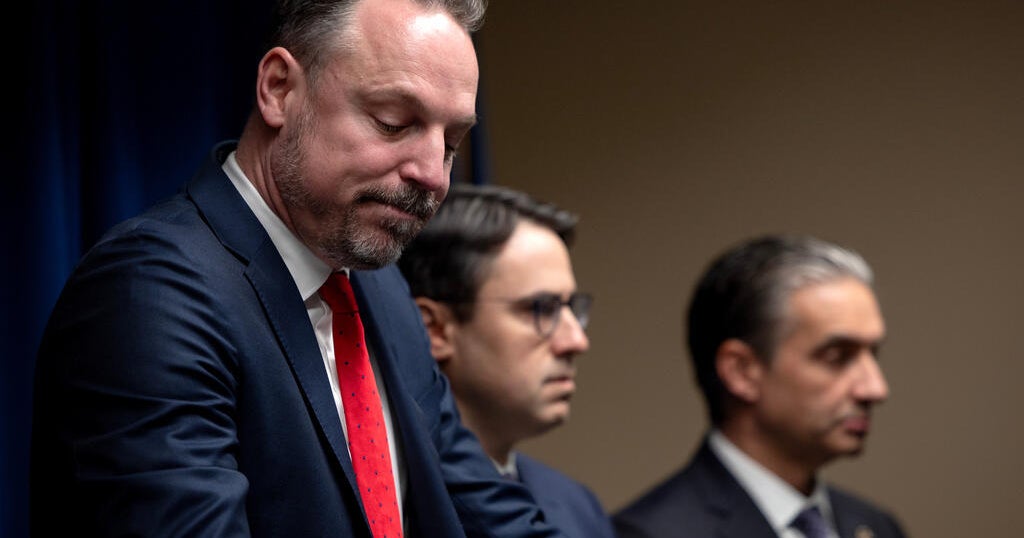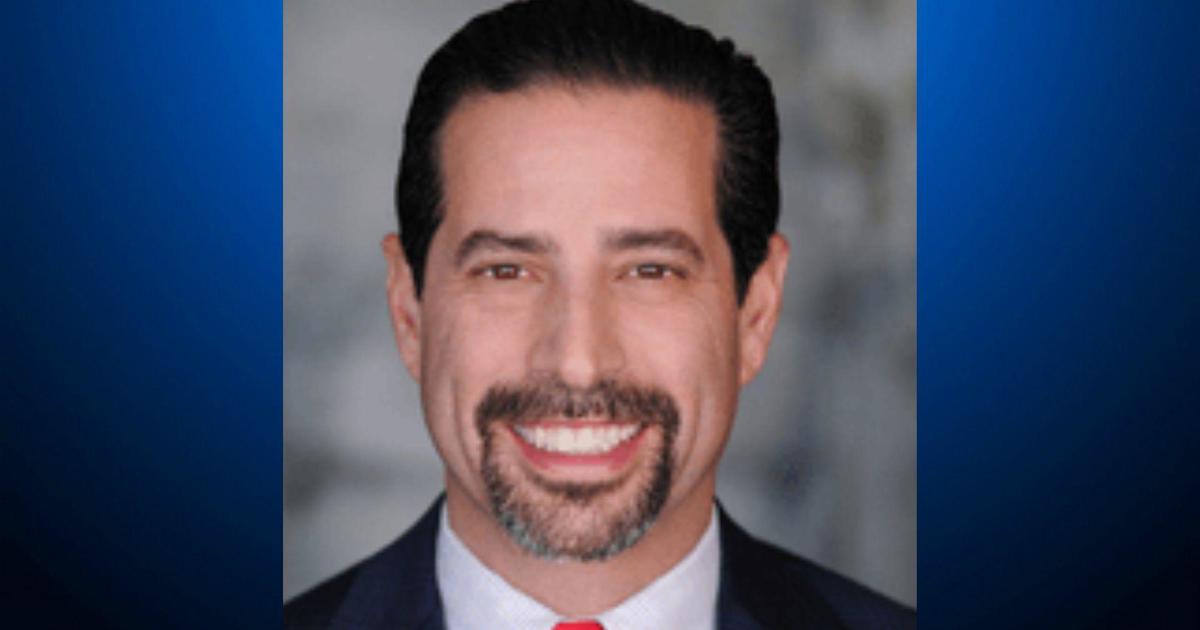Ousted U.S. attorney details push by Barr to resign post or be fired
Washington — Manhattan's former chief federal prosecutor told lawmakers on the House Judiciary Committee Thursday that Attorney General William Barr repeatedly urged him to resign his post and take another job within the Trump administration, eventually warning that if he did not do so he would be fired instead.
Former U.S. Attorney Geoffrey Berman, who led the U.S. Attorney's Office in the Southern District of New York, testified behind closed doors before the judiciary panel and detailed in his written opening statement the events leading up to his abrupt departure from the Justice Department last month, which has sparked scrutiny from lawmakers.
According to Berman's prepared remarks, Barr pushed him to step down from his role as the chief prosecutor in Manhattan during both an in-person meeting at a hotel in New York City on June 19 and in a phone call that evening. Berman was subsequently fired the following day, June 20, after rebuffing Barr's overtures and declining to resign.
Berman said in his prepared remarks that he met with Barr for roughly 45 minutes at The Pierre hotel, during which the attorney asked him to resign and take a job leading the Justice Department's Civil Division. In stepping down as the U.S. attorney for the Southern District of New York, Berman recalled Barr saying it would allow Jay Clayton, chairman of the Securities and Exchange Commission, to replace him in the role.
Berman told lawmakers that he informed Barr while he "knew and liked" Clayton, he believed he "was an unqualified choice for U.S. attorney for the Southern District of New York because he was never an [assistant U.S. attorney] and had no criminal experience."
After Berman told Barr he was "not interested" in resigning or overseeing the civil division, Berman recalled that the attorney general encouraged him to take the job in Washington, as "the role would be a good resume builder."
"He said that I should want to create a book of business once I returned to the private sector, which that role would help achieve," Berman said of Barr in his written remarks. "He also stated that I would just have to sit there for five months and see who won the election before deciding what came next for me."
Recalling his conversation with Barr, Berman said there were "important investigations" ongoing in his office that he wanted to see completed and again indicated he would not resign.
"The attorney general said that if I did not resign from my position, I would be fired," Berman recalled, according to his opening statement. "He added that getting fired from my job would not be good for my resume or future prospects. I told him that while I did not want to get fired, I would not resign."
According to Berman, Barr said "he was trying to think of other jobs in the administration that might be of interest to me. I said that there was no job offer that would entice me to resign from my position."
Berman said in his prepared remarks he spoke with Barr again on the phone the evening of June 19, during which the attorney general asked whether he would be interested in serving as chairman of the Securities of Exchange Commission. But Berman said his stance was "unchanged."
"That is the last time I spoke to the attorney general or anyone on his staff," Berman said of his three-minute phone call with Barr.
That evening, Barr announced Berman would be "stepping down" and President Trump would be nominating Clayton to replace him. But Berman refuted Barr's announcement and issued a separate statement stressing that he had no intention of resigning.
The following day, June 20, Barr said Berman had been fired by Mr. Trump. Berman's deputy, Audrey Strauss, was tapped to serve as acting U.S. attorney. Berman said it was the selection of Strauss to temporarily lead the U.S. attorney's office that led him to "step down and not litigate" his removal, Berman said in his opening statement.
The circumstances of Berman's removal as U.S. attorney in New York — and the dramatic series of events surrounding it — raised questions among lawmakers who likened it to other late-night firings of Trump administration officials. However, some Republican lawmakers dismissed Berman's testimony.
"I think it was a whole in general it was a lot of nothing," Republican Congressman Jim Jordan told reporters after listening to Berman's testimony. Congressman Matt Gaetz, another Republican, said that Berman had "his feelings hurt as a consequence of desired shift in human resources within the administration," but described no wrongdoing by the Justice Department to the committee.
Judiciary Committee Chairman Jerry Nadler told reporters that Berman's testimony proved that Barr "lied repeatedly to the public."
"Barr knew full well that Mr. Berman had not resigned from his post when he told the public otherwise. We will certainly have a lot to discuss with Mr. Barr when we see him in a few weeks," Nadler said. Barr is scheduled to testify before the committee on July 28.
Berman's office conducted numerous investigations into people with ties to Mr. Trump, including Michael Cohen, the president's former personal attorney, and two associates of Rudy Giuliani, also Mr. Trump's personal lawyer.
The White House last month said Berman was ousted because Mr. Trump wanted to find a place in his administration for Clayton, who planned to return to New York. Barr, White House press secretary Kayleigh McEnany said, was "working on a smooth transition" but raised the issue of Berman's departure with the president once he refused to resign.
Grace Segers contributed to this report.



